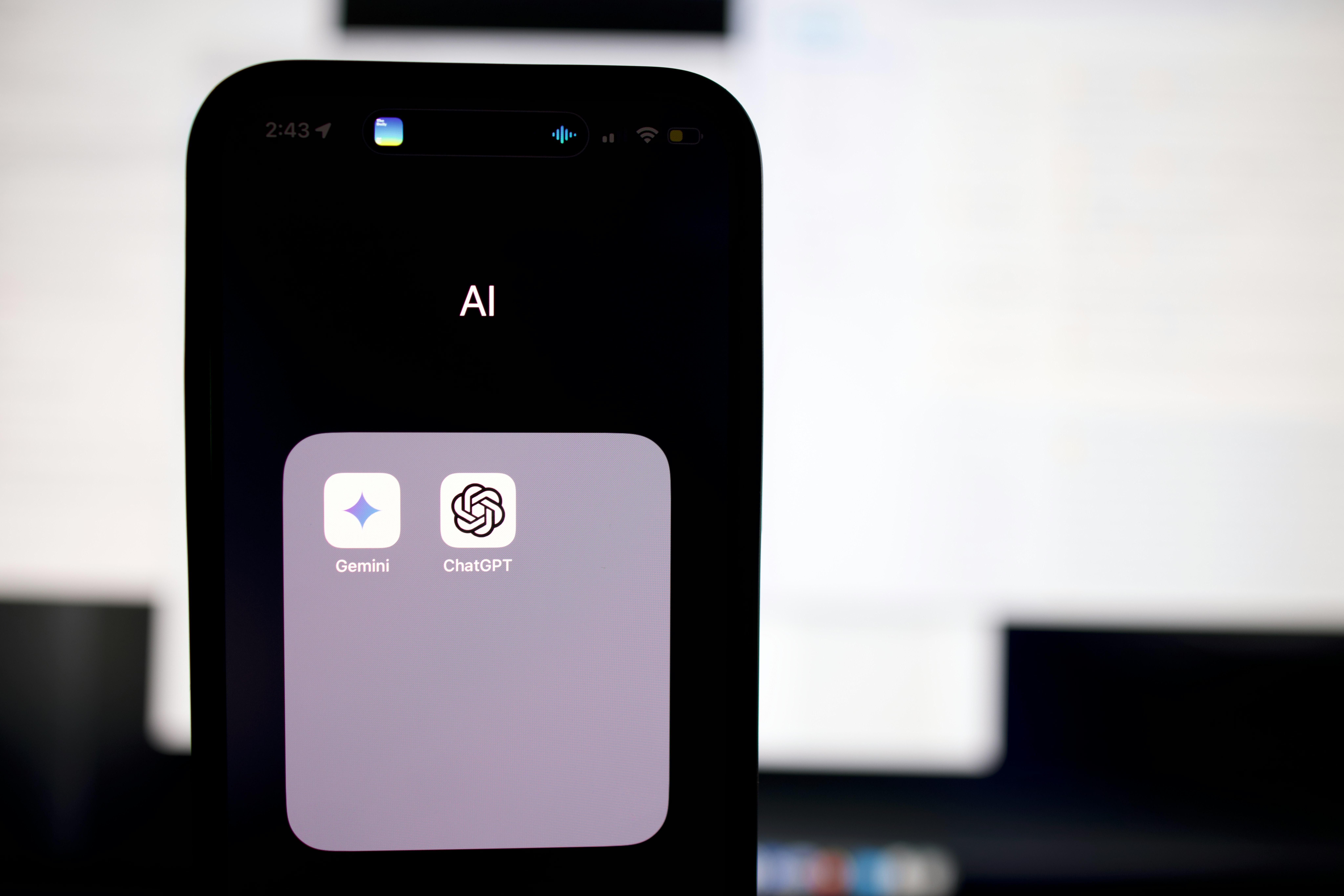Integrating Artificial Intelligence (AI) into Pay-Per-Click (PPC) advertising is not just a trend but a transformative shift in digital marketing. AI enhances ad bidding strategies, ensuring more precise targeting and effective use of ad budgets. By analysing large datasets at lightning speed, AI enables advertisers to make smarter decisions and predicts consumer behaviour more accurately.
The future of PPC revolves around leveraging AI to stay competitive. This technology can automate bids and adapt strategies in real time, ensuring your ads reach the right audience at the optimal moment. As AI continues to evolve, it offers unprecedented opportunities to optimise campaigns and achieve better returns on investment.
Yet, like any innovation, integrating AI into your PPC strategy brings its own challenges. Understanding how to navigate these will be crucial. Balancing AI automation with human insight will help you make the most of this powerful technology and keep your advertising efforts ahead of the curve.
Key Takeaways
- AI enhances PPC by making ad bids smarter and more efficient.
- Leveraging AI technology can significantly optimise your PPC campaigns.
- Navigate AI challenges to maximise benefits and maintain control over your ads.
Defining PPC and AI in Digital Marketing
PPC (Pay-Per-Click) is a model of internet marketing where advertisers pay a fee each time one of their ads is clicked. It’s a way of buying visits to your site, rather than attempting to “earn” those visits organically.
AI (Artificial Intelligence) involves machines learning from data to perform tasks that would typically require human intelligence. In digital marketing, AI can analyse vast amounts of data and make decisions or predictions based on that information.
Maximize your law or finance firm’s potential with Flow20! Our specialized SEO for law, SEO for finance, and PPC for law services are designed to elevate your online presence. Click here to start dominating your industry today!
How PPC Works
- Advertiser Bids: Advertisers bid on keywords relevant to their business.
- Ad is Triggered: When someone searches using those keywords, the ads may appear.
- Payment: Advertisers pay only when their ad is clicked.
AI Applications in PPC
- Optimising Bids: AI can automatically adjust bids based on performance metrics.
- Predicting Outcomes: It can forecast the success of ads using historical data.
- Audience Targeting: AI can identify the best audience segments to target.
Benefits of Combining PPC and AI
- Increased Efficiency: AI reduces time spent on manual bidding and ad adjustments.
- Enhanced Performance: More accurate targeting and predictions lead to better ad performance.
- Data-Driven Decisions: Decisions are based on data analysis rather than guesswork.
You can leverage tools like Google Ads and Facebook Ads to run PPC campaigns, both of which are increasingly integrating AI to boost their functionalities. This combination helps you get the most out of your advertising budget.
Advancements in AI for Enhanced PPC Strategies
Integrating AI into PPC strategies has revolutionised how campaigns are managed. By leveraging AI technologies, you can achieve greater efficiency, precision, and effectiveness in your advertising efforts.
Machine Learning Algorithms in Bid Optimisation
Machine learning algorithms are central to modern PPC ad bidding strategies. These algorithms analyse large sets of data to predict the best times and channels to place bids. By continuously learning from past campaigns, they refine their predictions and help you get the most out of your ad spend.
One important aspect is automated bidding, where the algorithm adjusts bids in real time based on the likelihood of achieving a specific goal. This can increase your ads’ visibility and effectiveness, reducing wasted spend on underperforming placements.
Machine learning also helps in identifying patterns that human analysts might miss. By recognising these trends, you can make more informed decisions and strengthen your ad strategies.
Predictive Analytics for Audience Targeting
Predictive analytics uses historical data to forecast future trends and behaviours. In the context of PPC, it allows you to target audiences more precisely by predicting who is most likely to convert.
By analysing patterns in user behaviour, you can create more relevant ads that resonate with potential customers. This means higher click-through rates and better ROI on your campaigns. Predictive models can also help you determine the best times to run your ads, ensuring they reach your audience when they are most receptive.
By integrating predictive analytics into your PPC strategy, you’re better positioned to meet your business objectives and maximise ad efficiency.
Real-Time Bidding and Data Processing
Real-time bidding (RTB) is a method where ad impressions are bought and sold in real time through automated auctions. This process relies heavily on fast data processing to evaluate each impression and decide whether to bid on it.
RTB allows you to reach your target audience more effectively by acquiring ad slots that are most likely to engage users. The speed and efficiency of RTB mean that you can adapt to market demands and user behaviours almost instantaneously.
Incorporating AI in data processing ensures that the bidding process is not only swift but also accurate, improving the precision of your ad placements and achieving better results with your budget.
Challenges and Considerations of AI Integration
Integrating AI into PPC advertising brings benefits like efficiency and effectiveness, yet it comes with significant challenges. These include maintaining data privacy and handling technical complexities.
Data Privacy and Ethical Concerns
AI systems require vast amounts of data to function efficiently. This raises numerous data privacy issues. When using AI for ad bidding, you must ensure that all customer data is managed securely and in compliance with GDPR and other regulations.
Another concern involves ethical considerations. AI algorithms might unintentionally reinforce biases present in the data. This could lead to unfair targeting or exclusion of certain groups. You need to constantly monitor and refine your algorithms to make sure they adhere to ethical standards.
Finally, transparency is crucial. You should inform your customers about how their data is used and offer them choices regarding data sharing. Building trust through transparent practices can help mitigate some of these privacy and ethical concerns.
Overcoming Technical Complexities
Implementing AI in PPC advertising involves considerable technical challenges. For starters, you need expertise in both AI and PPC to effectively integrate the two. This may require hiring skilled personnel or investing in training for your current team.
Additionally, the technology itself can be complex. AI systems need to be regularly updated and maintained. This ongoing maintenance can be both time-consuming and costly. Ensuring compatibility and seamless integration with your existing systems can further add to these challenges.
Finally, there is the issue of accuracy. Even the most advanced AI systems are not perfect and can make errors. You should regularly test and validate your AI models to ensure they are providing reliable and accurate results, while also allowing for human oversight.
Boost your online sales with Flow20’s expert eCommerce SEO and Bing PPC services! Get ahead with Google Ads and master your campaigns with our Google Ads training. Click here to maximize your reach and revenue today!
Navigating the Future of PPC with AI
As AI continues to advance, it reshapes the strategies for PPC, making ad bidding smarter and more efficient. Embracing AI helps you maintain a competitive edge and adapt to continuous changes in the digital ad space.
Staying Competitive in a Rapidly Evolving Landscape
To remain competitive, you need to integrate AI-driven tools into your PPC campaigns. Automated bid management allows AI to adjust bids in real-time based on user behaviour and market trends. This reduces manual effort and improves efficiency.
Predictive analytics is another crucial feature. AI can analyse vast amounts of data to predict which keywords will perform best, thereby optimising your ad spend. Leveraging AI-driven audience targeting ensures your ads reach the most relevant users, increasing the chances of conversions.
Staying updated with the latest AI technologies is also vital. Regularly attending webinars and industry conferences helps you stay informed about new tools and strategies. Collaboration with AI experts can provide insights and help implement sophisticated AI solutions tailored to your needs.
Preparing for Continuous Learning and Adaptation
AI in PPC requires ongoing learning and adjustment. Continuous data analysis helps you understand what works and what doesn’t. AI systems get smarter over time, so you need to feed them with up-to-date data and refine strategies based on performance.
Training your team on AI tools is essential. Provide regular training sessions to help them make the most of the new technology. Encouraging a culture of adaptability and innovation ensures your team remains proactive and creative in their approach.
Monitoring AI performance is crucial. Regularly review AI-driven campaigns to ensure they meet your goals. If something isn’t working, be ready to tweak or overhaul your strategies. Flexibility and willingness to adapt keep your campaigns effective in a rapidly changing environment.
Drive more traffic and conversions with Flow20’s effective SEO strategies. Get started today! Harness the full potential of Pay Per Click (PPC), Linkedin and Digital marketing with Flow20. Achieve greater ROI with our expert guidance.





